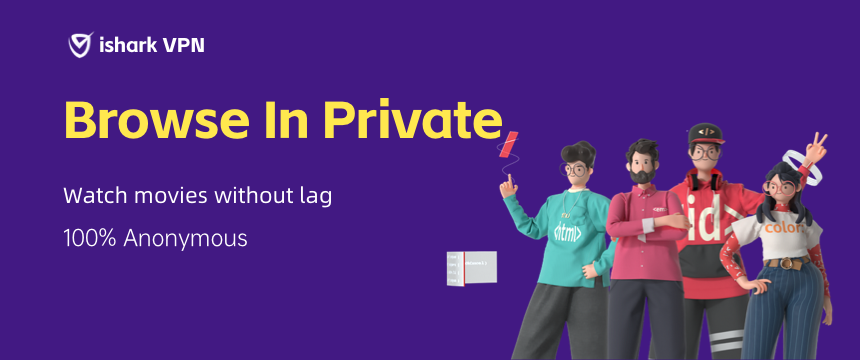The Impact of VPN on Digital Payment Security: Safeguarding Mobile Payment Transactions
ishark blog article
With the widespread use of smartphones and the development of mobile networks, mobile payments have become increasingly popular.
However, along with this popularity comes security vulnerabilities, including data leaks and malicious software attacks.
To ensure the security of mobile payment transactions, more and more users are considering the use of Virtual Private Networks (VPN) to strengthen the protection of payment data.
This article explores the proliferation of mobile payments and security risks, analyzes the application and effects of VPN in digital payments, addresses potential latency and data encryption issues in mobile payments with VPN, and provides strategies and recommendations to enhance the user experience of VPN in digital payments.

The Proliferation of Mobile Payments and Security Risks
With the widespread adoption of smartphones, mobile payments have rapidly become the preferred method of payment for daily transactions. Users can effortlessly conduct payment transactions through mobile devices such as smartphones and tablets, providing convenience and flexibility. However, mobile payments also come with a range of security risks, including:
Data Leaks: During mobile payment transactions, users' personal and payment information may be susceptible to hacker attacks, leading to the leakage of sensitive data.
Malicious Software Attacks: Mobile devices are vulnerable to malicious software attacks, potentially resulting in the theft or alteration of users' payment information.
Public Wi-Fi Security: When using public Wi-Fi for payments, there is a risk of man-in-the-middle attacks, necessitating enhanced data transmission security.
The Application and Effects of VPN in Digital Payments
VPN, as an encryption communication technology, provides higher security and privacy protection for digital payments. The application and effects of VPN in digital payments include:
Data Encryption: VPN encrypts users' payment data, making it difficult for hackers to easily steal or alter payment information, thereby increasing the security of payment transactions.
Concealing Real IP Addresses: VPN can hide users' actual IP addresses, providing users with more privacy and anonymity during payments.
Preventing Public Wi-Fi Attacks: When users use public Wi-Fi, VPN creates an encrypted tunnel, preventing hackers from conducting man-in-the-middle attacks and safeguarding data transmission security.
Overcoming Geographical Restrictions: VPN can bypass geographical restrictions, allowing users to access their country or region's payment platforms from anywhere, enhancing convenience.
Addressing Potential Latency and Data Encryption Issues in Mobile Payments with VPN
Using VPN in mobile payments may encounter the following latency and data encryption issues:
Latency: VPN encryption and decryption processes may introduce delays in payment transactions. Solutions include choosing high-speed VPN service providers and optimizing network connections.
Data Encryption Performance: Some low-end devices may be affected by the VPN encryption and decryption process, impacting payment transaction speed. One solution is to select VPN protocols and encryption methods that are suitable for device performance.

Strategies and Recommendations to Enhance the User Experience of VPN in Digital Payments
To improve the user experience of VPN in digital payments, here are some recommendations:
Choose Reliable VPN Providers: Users should select verified and trustworthy VPN providers to ensure the proper protection of payment data.
Optimize Network Connections: Optimize the network connection of mobile devices to reduce latency during VPN encryption processes.
Match Device Performance: Select VPN protocols and encryption methods that match the performance of the mobile device to ensure smooth payment transactions.
Avoid Using Free VPN: Free VPN may pose security risks, and it is advisable to use paid, high-quality VPN services.
Regularly Update VPN Clients and Device Software: Ensure that VPN clients and mobile device software are always up to date to mitigate potential security vulnerabilities.
Conclusion:
VPN plays a pivotal role in digital payments, offering higher security and privacy protection.
However, using VPN in mobile payments requires attention to potential latency and data encryption issues.
By choosing reliable VPN providers, optimizing network connections, and matching device performance, users can enhance the experience of VPN in digital payments, ensuring the security and convenience of payment transactions.









